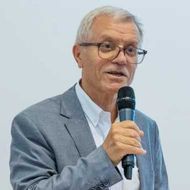HSE University Shapes Global Chain of Foresight

The COVID-19 pandemic has demonstrated our swift adaptation to big challenges and strengthened cooperation ties between researchers, politicians, and entrepreneurs on national and global levels. The accumulated life and goal setting practices in the new reality will be discussed on October 15–26, 2021 by participants of the XI International Academic Conference ‘Foresight and Science, Technology and Innovation Policy’ organised by the Institute for Statistical Studies and Economics of Knowledge (ISSEK).
The agenda of the conference is built around the discussion of theoretical and applied aspects of foresight (long-term forecasting of promising trends in research and development) and use of foresight project results to develop evidence-based S&T and innovation policy measures.
Approximately 80 reports will be presented online during 20 sessions and seminars within the eight days of the conference. There will be experts from European Commission, World Intellectual Property Organisation (WIPO), Global Futures Studies Centre ‘The Millennium Project’, representatives from Russian and foreign research centres and leading universities, ministries and agencies, development institutes and companies from more than 25 countries, where foresight practices are closely integrated into the political agenda, including from the United Kingdom, Germany, India, Canada, China, Singapore, United States, Finland, Sweden, South Africa, and Japan.
Alexander Sokolov, the Head of the Conference organising committee, Deputy Director of ISSEK, Director of ISSEK Foresight Centre

Together with our partners, we will discuss pithy and methodological issues of implementing foresight on the international, national and corporate levels, as we approach the new cycle of the Russian S&T Foresight. As usual, during the conference workshops, we will look at the recent developments in scientific cooperation of BRICS countries, which are already ahead of EU countries and United States in terms of R&D funding and publication activity. In some sections, we will scrutinize Russia’s strengths and weaknesses in the new Global Innovation Index calculated by WIPO together with a network of academic partners (this year, joined by HSE University through ISSEK), look at a network of foresight centres developing around the world and our plans to establish and implement a UNESCO Chair on Future Studies at the Higher School of Economics.
Foresight has always been focused on a search of a secure foothold and sound answers to big challenges under growing complexity and uncertainty. During the first years of the pandemic, these objectives had touched upon each of us. I am sure many work practices that had formed within the last decades could now be useful not only to the academia and experts, but to a wider audience as well.
Among smaller subjects of the conference— management of innovations in the context of sustainable development, defining of science and technology frontiers with the help of intellectual analysis tools and, in general, digital technology effects on the economy and lives of individuals and society as a whole. Digitalisation, boosted by the COVID-19 pandemic, became a driver of large-scale economic and social transformations, meanwhile aggravating the digital gap problem: not all sectors of the economy managed to swiftly transfer to remote and hybrid work formats and not all groups of the population were ready to master digital solutions. Speakers will touch upon the subjects of strengthening cooperation between science and business, changing the role of universities in the post-pandemic era and many others. The detailed schedule can be found here.
If you wish to participate, you need to register.
The conference will be held online in Zoom.
Working languages: Russian and English (with simultaneous interpretation)
All sessions will be broadcasted on a YouTube channel of HSE ISSEK.
Email of the organising committee: issek@hse.ru
